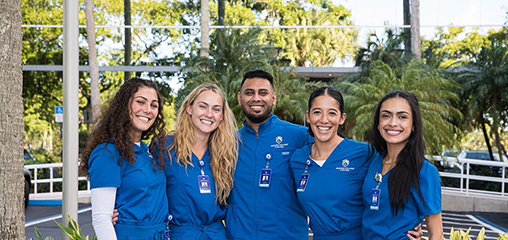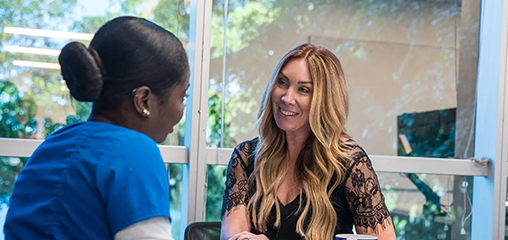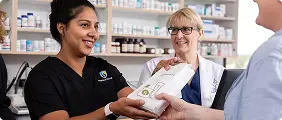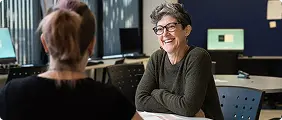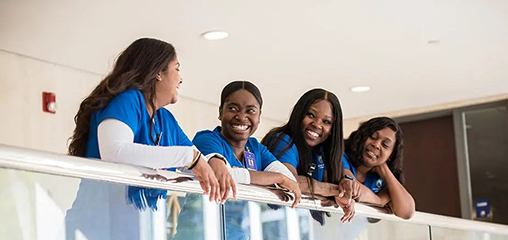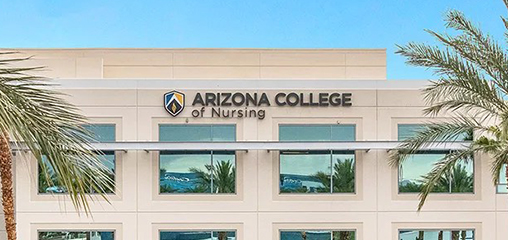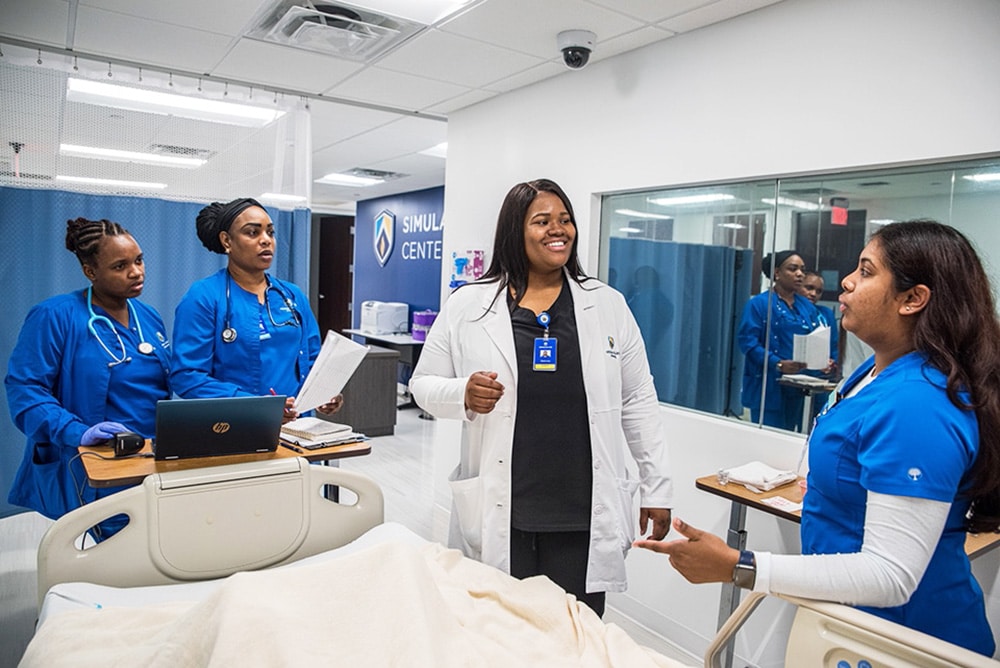
Nurses are in demand and studies show there will be a significant shortage in Florida by 2035. Arizona College of Nursing is offering classes in Sarasota and Tampa to provide South Florida students an opportunity to pursue this sought-after career.
Observer Media Group, Published November 16, 2023
By Liz Ramos, Observer Staff
Molly Johnson, a licensed practical nursing program instructor at Manatee Technical College, enlists student Michael Baez’s help with demonstrating how to properly move a patient on a bed. Using a mannequin that represents a patient, Johnson carefully explains every move to a group of intent students. Meanwhile, other LPN students, including Anabel Martinez and Breann Marshall, practice taking each other’s vitals.
These hands-on activities are just one way MTC is ensuring these students are ready for a nursing career upon graduation.
There couldn’t be a better time to consider a career in nursing.
Hospitals around the state — and the country — are experiencing critical staffing shortages. The Florida Hospital Association estimates that, by 2035, Florida will face a shortage of more than 55,000 nurses. There’s the perfect storm of reasons why, including the COVID-19 pandemic and subsequent employee burnout, a rapidly aging population, lack of qualified educators and programs, and high turnover.
Regional educational institutions, including MTC; State College of Florida, Manatee-Sarasota; and Arizona College, have heard the message loud and clear — and are addressing the problem by offering creative strategies and programs that are more accessible to nursing student candidates.
“Being able to provide the education to make sure we have safe, competent nurses going out into the field is extremely important or else we’re not going to have the means to take care of our people who are sick and in need,” says Dayna Grella, the nursing program director at MTC, which offers programs for students to become licensed practical nurses, nursing assistants and patient care technicians.
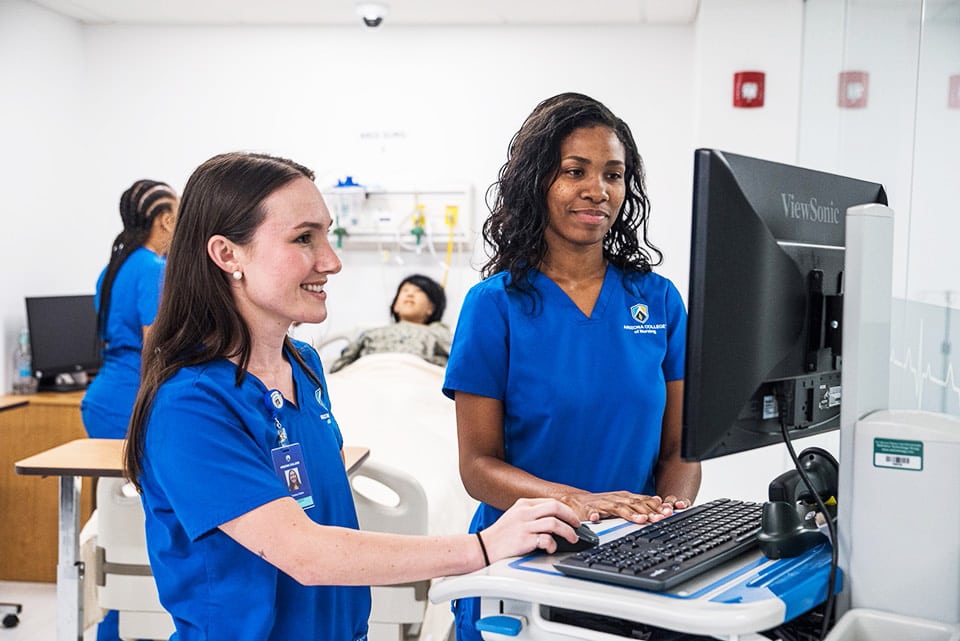 Alexis Garruzzo, the executive director of academic operations at Arizona College of Nursing’s Sarasota campus, says the college was deliberate in its choice to have a Sarasota campus, which is located off University Parkway.
Alexis Garruzzo, the executive director of academic operations at Arizona College of Nursing’s Sarasota campus, says the college was deliberate in its choice to have a Sarasota campus, which is located off University Parkway.
“We look at what the number of job opportunities in the nursing profession are in a market and then we look at the number of qualified nurses in the area,” Garruzzo says. “The Gulf Coast area as a whole has a pretty severe shortage. We decided to target that market.”
Arizona College of Nursing exclusively provides a Bachelor of Science in nursing that can be completed in three years. Its Sarasota campus opened in August 2022. The college will produce its first graduates in spring 2025.
State College of Florida offers an associate degree in nursing, a licensed practical nursing program, a registered nurse program and a bachelor’s degree in nursing. Starting in August, SCF was able to increase the number of students the college could accept in its nursing programs as a result of $1.1 million raised through community partnerships and a match from the state Legislature.
“One of my personal goals was to find a way to double the number of nurses we can take in our programs,” says Carol Probstfeld, the president of SCF. “When I started here, we were at about 180 students per year. I’m happy to say this fall we have 366 students who have identified as being part of our nursing program.” SCF is also expanding to offer its nursing programs at its campus being built in Parrish.
Every nursing student at Arizona College of Nursing, MTC and SCF participates in clinicals at medical facilities throughout Manatee and Sarasota counties to obtain real-world experiences.
The three educational institutions ensure the students work in a variety of medical facilities, including hospitals, nursing homes, hospice centers, mental health facilities and pediatricians’ offices. This gives students an opportunity to see where they would like to work after they graduate and in what they might like to specialize.
“It helps a student take the content they’re learning from the classroom and put real-life application to it so they understand this is the environment they could expect and see what’s a good fit for them before they make a permanent career choice,” Garruzzo says.
A challenge can be finding clinical placements.
“We have other schools in the area, so everybody’s kind of competing for that clinical space,” Grella explains. “There’s just not enough clinical space to go around to be able to expand as much as I think all of us would like to expand.”
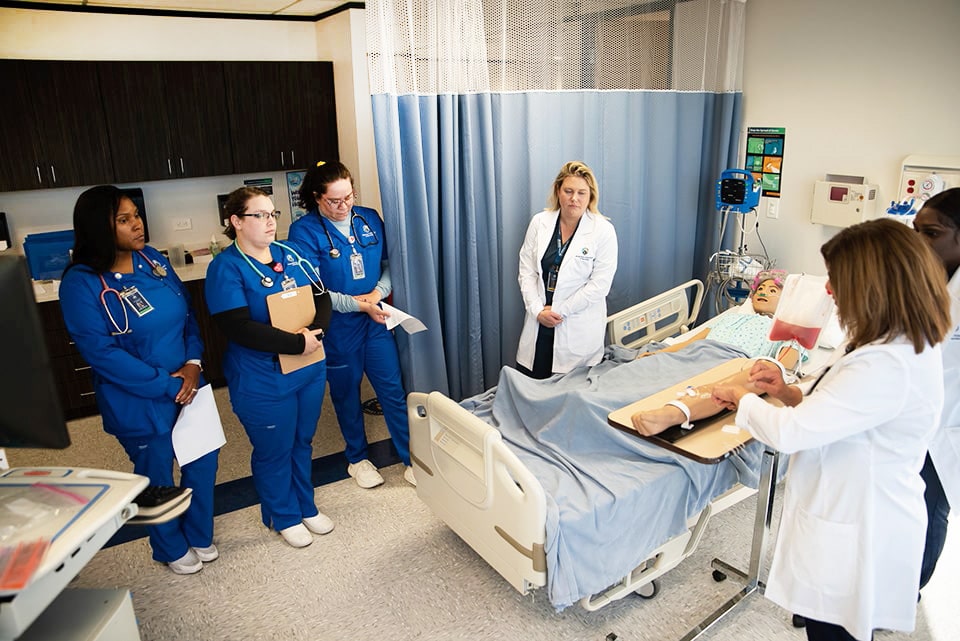 Besides clinicals, another hands-on learning opportunity comes from the simulation labs at each college. All of them have CAE high-fidelity “manikins” that mimic body functions and provide students with an opportunity to practice clinical skills without the risk of patient harm.
Besides clinicals, another hands-on learning opportunity comes from the simulation labs at each college. All of them have CAE high-fidelity “manikins” that mimic body functions and provide students with an opportunity to practice clinical skills without the risk of patient harm.
“Not only do we have the technology, but we have all the scenarios that our top-notch faculty has created so they can set up just about anything they want to,” Probstfeld says. “It gives them a safe environment where, if they make mistakes, it’s not going to be life-threatening. It gives them confidence. Once they’ve been able to do it in that environment, it’s not new to them when they’re in a live environment.”
SCF also brings actors into the simulation labs to act as family members so students can learn how to interact with them in various situations.
Grella, Garruzzo and Probstfeld say many of the graduates from these programs remain local because they have ties to the community.
“When you have somebody who’s working in a community where they live, they have a personal connection,” Probstfeld says. “That’s one of the hard parts about the cost of housing. When you have law enforcement officers, teachers or nurses who can’t live in the community they work in, they don’t have the same level of personal connection. It’s imperative we have as many people working in this field as we possibly can who are from here. Then they can be part of the fabric of the community.”
To get more nurses into the field sooner, MTC is starting a licensed practical nursing program open to all juniors in Manatee County high schools.
It’s scheduled to start in January with 12 students.
Start Your Future in Nursing Today
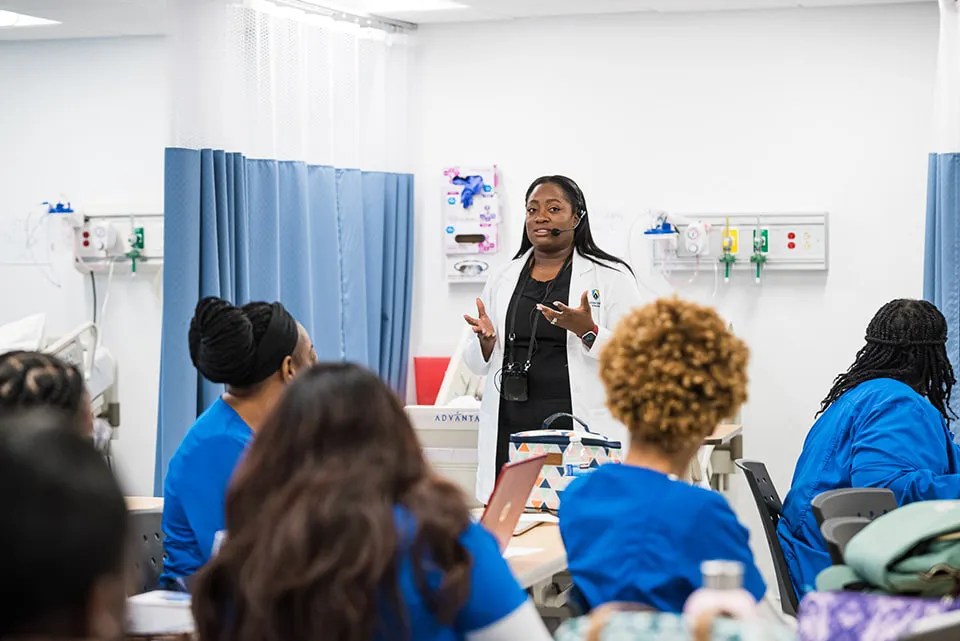
If you’re considering a career as a registered nurse (RN), Arizona College of Nursing is here to help you pursue your dream. Our BSN program enables you to earn a Bachelor of Science in Nursing in just 3 years or less with qualifying transfer credits. We’ve helped hundreds of students to earn a BSN degree and enter the nursing profession – and we’re ready to support you on your path to becoming an RN.
Why Choose Arizona College of Nursing?
- Earn a BSN degree in 3 years or less with eligible transfer credits
- Campus locations throughout the US
- Night classes for general education courses
- Hybrid Online/In-Person format for general education classes
- Nursing education is all we do
- CCNE-Accredited Program*
- NCLEX-RN success coaches and exam preparation class
- Financial aid available to those who qualify
Discover Your Path to a Career in Nursing
Information in this post is accurate as of February 15, 2024.
*The Bachelor of Science in Nursing (BSN) degree program at Arizona College of Nursing is accredited by the Commission on Collegiate Nursing Education (https://www.aacnnursing.org/). All Arizona College of Nursing and Arizona College campuses are institutionally accredited by the Accrediting Bureau of Health Education Schools (https://www.abhes.org/), a U.S. Department of Education-recognized accrediting agency.
